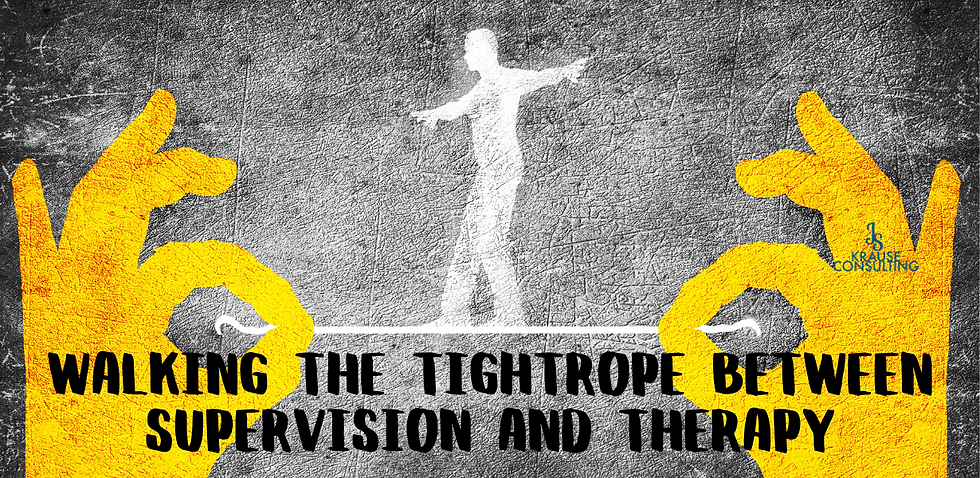How Finding the Right Supervisor Will Help You Better Understand Your Future Clients
- Jason Krause
- Dec 26, 2019
- 3 min read
So, you are looking for a supervisor. Either you are waist-deep in textbooks, term papers, and presentations, or you have a diploma in hand eyeing licensure and the future with equal parts excitement and trepidation. While supervision is a requisite part of both, selecting the right supervisor for you can mean the difference between doing just enough to get by or fully realizing your potential. The key is to find someone who can be an integral part of your journey from student to actualized mental health professional. This means research and the fortitude to know and trust yourself.
Take time to fully research your options. There are many supervisors to choose from, though sometimes knowing where to find them is a bit tricky. Beginning with resources like Florida Supervisor simplifies your search. Find the supervisor who best fits your needs by exploring their qualifications, experience, and areas of expertise. A Qualified Supervisor has education and credentials beyond licensure as well as experience in your field. Verify their credentials through independent sources to ensure they are qualified to provide what you are looking for in a supervisor. In Florida, click here to check the status of their licensure, qualifications as a supervisor, and detail any disciplinary incidents on file. Another method to check out their reputation is to speak with their colleagues or current and former supervisees.
After you are certain who they are, it is important to get to know who you are when reaching out to this prospective supervisor. Self-reflection is a process which will be ongoing throughout supervision and into the foreseeable future. It is easy to believe that searching for a supervisor is an outward search but peering inwards and truly knowing yourself is what supervision is all about. This field demands a lot from us, just as we will ask a lot from our clients. It is difficult to measure growth without understanding who we are and where we are going. Exploring your theoretical orientation, areas of specialization, and personal strengths can help hone your search. While these areas may be currently unclear in your mind, they are likely to strengthen in tandem with the supervision process. Aligning yourself with the right supervisor can aid them in helping you develop your professional self.

Trust yourself when meeting with and interviewing your prospective supervisor. Come with questions and trust your gut. Supervision is a relationship, first and foremost. If you do not feel comfortable with your supervisor, you inhibit potential growth. By nature, this is a relationship which requires openness and candidness to flourish. Do you feel comfortable asking tough questions of, or listening to constructive criticism from them? This relationship will be one of the most important and rewarding you will develop in your professional career. Doing both outer and inner research will make it count.
Once the dust has settled and you have selected your supervisor, you can translate elements from this process to help you gain insight into how your future clients might feel about you. How? By understanding that clients are searching intently for someone, just as you were. And while there are differences in the nature of therapeutic versus supervisory relationships, the process itself is more similar than you might imagine. Remember the importance of this decision to your future. Your clients will also be seeking something equally important in their lives. They will examine your credentials or ask others about your character. They will want to hear your theoretical orientation, areas of expertise, and want to know how they can benefit from this relationship. They will use their intuition as well, listening to their gut when sitting across from you in consultation and during sessions. Though they know in their hearts they need help, they will also be fearful of introspection, change, and growth. Walking that gauntlet during the search for your own supervisor makes it easier to empathize with your future clients who are going through a similar experience. Being vulnerable and apprehensive can be intimidating. Remembering your own trepidation, and how you pulled through it in the end, allows you to empower your clients into taking those first steps to making a better life for themselves as well.
As seen on Florida Supervisor



Comments